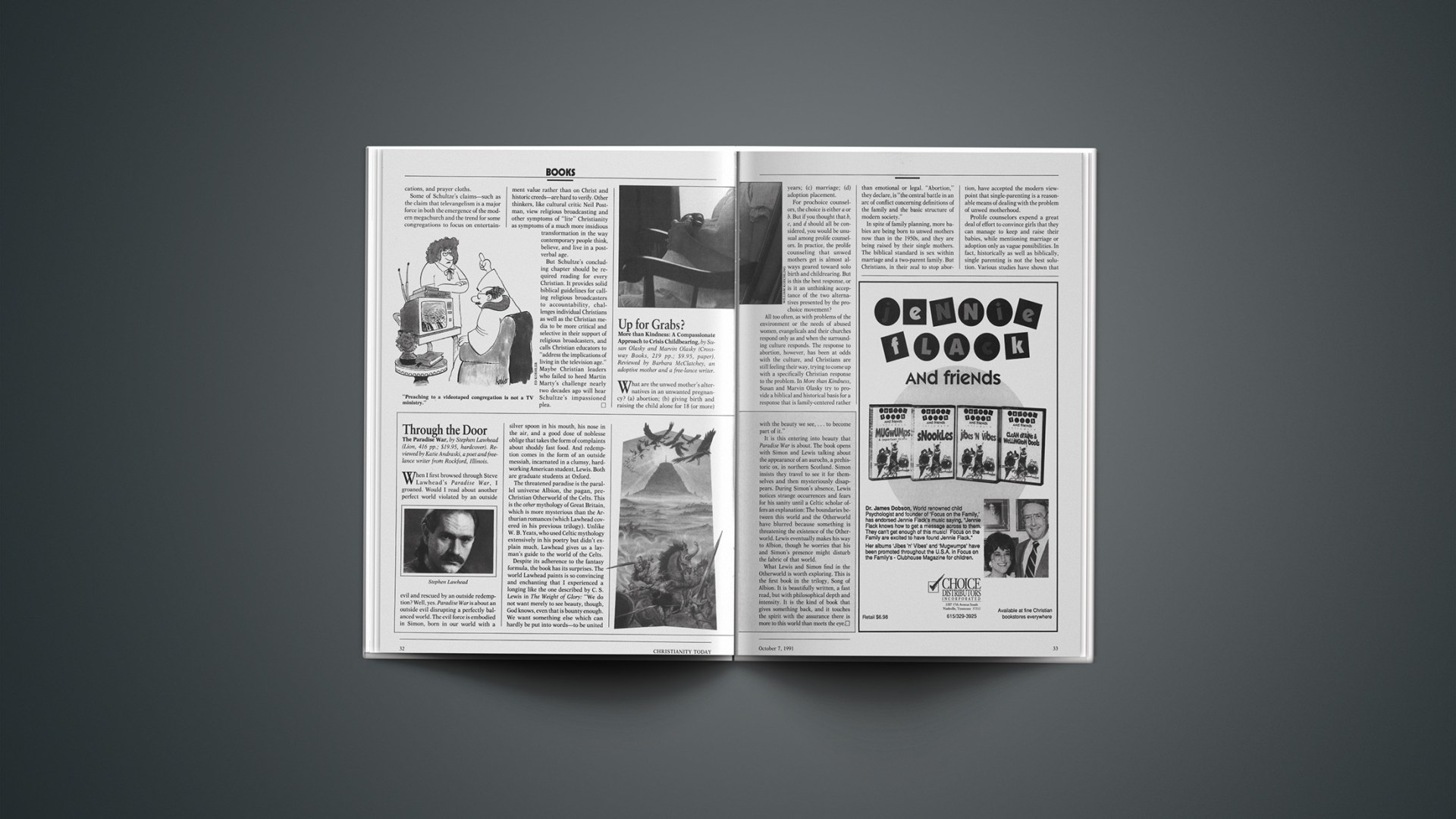The Paradise War, by Stephen Lawhead (Lion, 416 pp.; $19.95, hardcover). Reviewed by Katie Andraski, a poet and free-lance writer from Rockford, Illinois.
When I first browsed through Steve Lawhead’s Paradise War, I groaned. Would I read about another perfect world violated by an outside evil and rescued by an outside redemption? Well, yes. Paradise War is about an outside evil disrupting a perfectly balanced world. The evil force is embodied in Simon, born in our world with a silver spoon in his mouth, his nose in the air, and a good dose of noblesse oblige that takes the form of complaints about shoddy fast food. And redemption comes in the form of an outside messiah, incarnated in a clumsy, hardworking American student, Lewis. Both are graduate students at Oxford.
The threatened paradise is the parallel universe Albion, the pagan, pre-Christian Otherworld of the Celts. This is the other mythology of Great Britain, which is more mysterious than the Arthurian romances (which Lawhead covered in his previous trilogy). Unlike W. B. Yeats, who used Celtic mythology extensively in his poetry but didn’t explain much, Lawhead gives us a layman’s guide to the world of the Celts.
Despite its adherence to the fantasy formula, the book has its surprises. The world Lawhead paints is so convincing and enchanting that I experienced a longing like the one described by C. S. Lewis in The Weight of Glory: “We do not want merely to see beauty, though, God knows, even that is bounty enough. We want something else which can hardly be put into words—to be united with the beauty we see, … to become part of it.”
It is this entering into beauty that Paradise War is about. The book opens with Simon and Lewis talking about the appearance of an aurochs, a prehistoric ox, in northern Scotland. Simon insists they travel to see it for themselves and then mysteriously disappears. During Simon’s absence, Lewis notices strange occurrences and fears for his sanity until a Celtic scholar offers an explanation: The boundaries between this world and the Otherworld have blurred because something is threatening the existence of the Other-world. Lewis eventually makes his way to Albion, though he worries that his and Simon’s presence might disturb the fabric of that world.
What Lewis and Simon find in the Otherworld is worth exploring. This is the first book in the trilogy, Song of Albion. It is beautifully written, a fast read, but with philosophical depth and intensity. It is the kind of book that gives something back, and it touches the spirit with the assurance there is more to this world than meets the eye.










